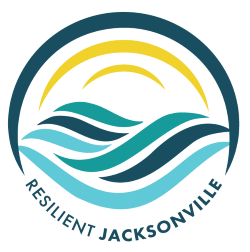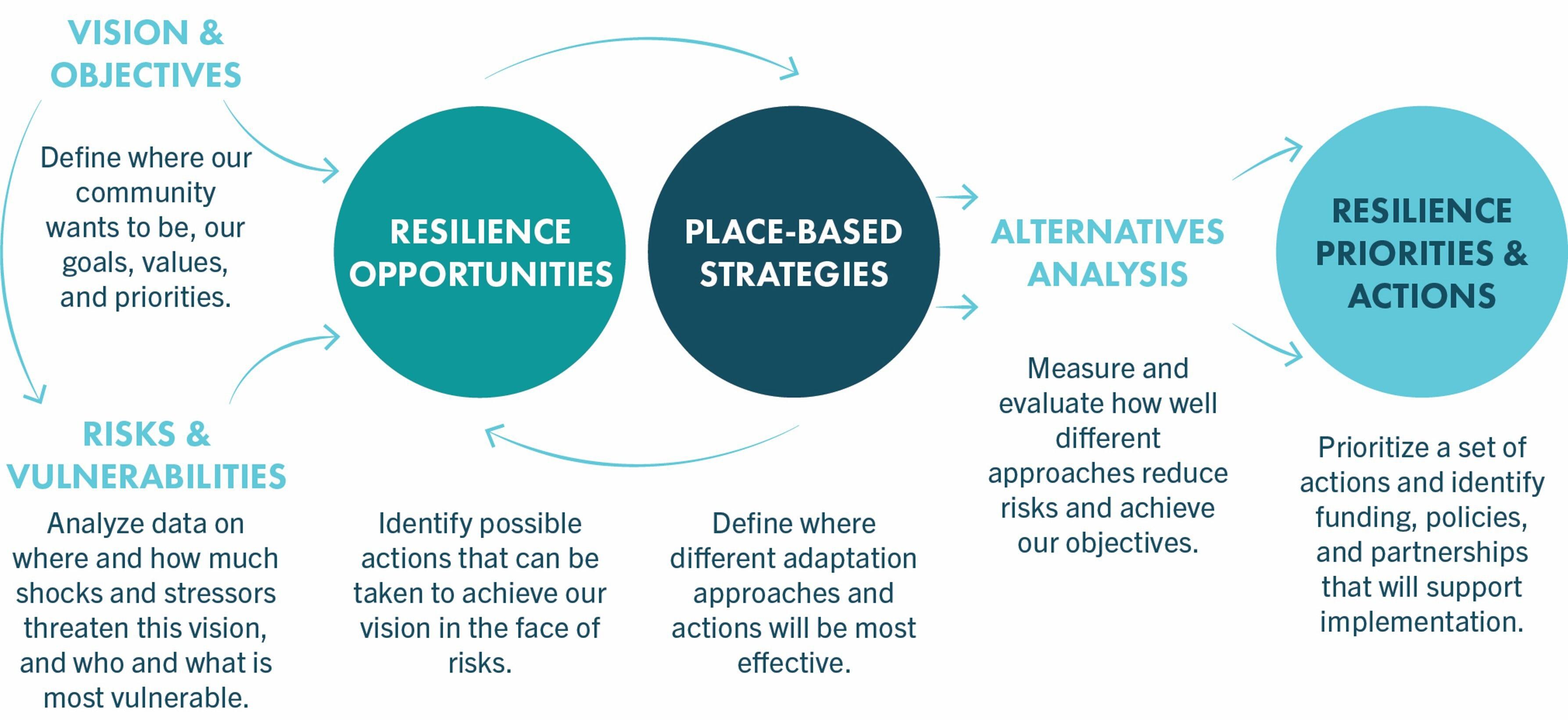City of Jacksonville
City of Jacksonville Resilience Strategy
The Challenge
EVOLVING CHALLENGES REQUIRE NEW APPROACHES
Jacksonville is a rapidly growing city. Its vast land area and diverse industries, along with mainstays like the city’s military bases and port, have made Jacksonville a dynamic place for businesses and residents to prosper. Jacksonville has also encountered its share of challenges in its 200-year history, and will face new and increasing challenges in the future; particularly those brought on by climate change. These impacts will further alter how residents experience daily life.
The Approach
A PROCESS GROUNDED IN SOUND SCIENCE
The collaborative and science-based planning process, led by the Water Institute, leveraged local expertise with science-based assessments of current and future conditions to identify specific, implementable actions and prioritize investments that will strengthen the city’s resilience.
Resilient Jacksonville includes 45 Adaptation Actions and 90 Sub-Actions that each identify specific and implementable policies, projects, and programs as well as the shocks and stresses they address, relative costs, potential funding sources, and implementation partners and timeframes. These actions advance the city’s vision for a resilient Jacksonville that proactively adapts, fosters health communities and environments, expands opportunity, and builds for the future.
The Strategy builds on these actions by tailoring and prioritizing them for different conditions on the ground in Jacksonville neighborhoods. The city’s vast scale and pace of growth present challenges in planning for citywide resilience. To identify where in Jacksonville different adaptation actions might be most effective, the Strategy establishes eight types of development conditions and provides a framework for targeted and scalable resilience actions that are tailored to the different characteristics and vulnerabilities of Jacksonville’s communities.
The Water Institute developed quantitative methods for analyzing the consequences of different approaches to where and how Jacksonville invests in its future to provide decision-makers with data-informed insights to complex questions about how and where Jacksonville should target future growth, where shoreline protection should be prioritized, and where City-owned assets should be fortified. Resilient Jacksonville
concludes by exploring a set of “what if?” future scenarios for where new development could occur to accommodate 685,000 new residents over the next 50 years, and how those decisions could impact risks to people, property, and ecosystems. The Strategy presents a resilient model of growth that accommodates a growing population while adapting to the challenges of a changing climate.
To learn more visit www.resilientjacksonville.com or contact resilience@coj.net.











